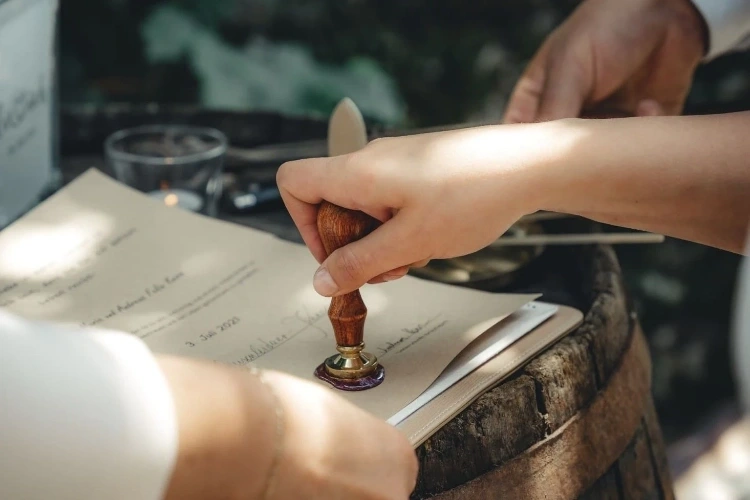UAE embassy attestation is a critical process for individuals planning to move to the United Arab Emirates, whether for work, education, or residence purposes. This process entails the authentication of documents by the UAE embassy or consulate after their verification in the country of origin to ensure their legal acceptance in the UAE.
Understanding UAE Embassy Attestation
UAE embassy attestation authenticates the genuineness of documents issued in one country for their use in the UAE. This attestation is vital for various purposes, such as employment, education, and residency in the UAE.
The Necessity of UAE Embassy Attestation
For individuals seeking to live, work, or study in the UAE, embassy attestation is mandatory to validate the authenticity of their documents. This process is essential for obtaining UAE visas, securing employment, and enrolling in educational institutions.
Procedure for UAE Embassy Attestation
- Notarization: Initially, the document must be notarized in the country of origin.
- Home Country Attestation: Subsequently, the document needs attestation by the relevant government authority in the country of origin.
- Translation: If necessary, the document should be translated into Arabic or English.
- UAE Embassy Attestation: Submit the document to the UAE embassy or consulate in the country of origin for attestation.
- MOFA Attestation in Dubai: The UAE's Ministry of Foreign Affairs (MOFA) should attest the document once it has arrived in the country.
Types of Certificates Requiring UAE Embassy Attestation
- Educational Certificates: For pursuing higher education or employment in the UAE.
- Non-Educational Certificates: such as birth, marriage, or death certificates for various legal purposes.
- Commercial documents: are necessary for business-related activities in the UAE.
Key Documents for UAE Embassy Attestation
- The original certificate needs attestation.
- Document holder has a copy of the passport.
Importance of UAE Embassy Attestation
- Employment is essential for validating educational qualifications for job opportunities.
- Education is necessary for student admissions in UAE educational institutions.
- Residency: Required for family visa applications, proving the legality of personal documents.
What are differences between UAE embassy attestation and MOFA attestation?
UAE embassy attestation and MOFA attestation serve similar purposes in authenticating documents for international use. UAE embassy attestation involves verifying and validating documents specifically for use in the United Arab Emirates. This process is conducted by the UAE embassy located in the country where the document was issued. On the other hand, MOFA attestation, or Ministry of Foreign Affairs attestation, is the authentication of certificates intended for use in foreign countries, including the UAE. The Ministry of Foreign Affairs in Dubai is responsible for performing MOFA attestation in the UAE. While both processes aim to ensure the validity and legality of documents, the specific authority conducting the attestation and the intended use of the document are the primary distinctions between UAE embassy attestation and MOFA attestation.
What are the steps to obtain attestation for a certificate from the UAE Embassy?
Obtaining attestation for a certificate from the UAE Embassy involves several sequential steps to ensure the document's authenticity and legal recognition in the United Arab Emirates. Here's a detailed guide:
- Verify the degree with the issuing authority. Begin by contacting the educational institution or the relevant educational authority in the country where the degree was issued. Request that they authenticate your degree by verifying its legitimacy and accuracy.
- Legalise at Home Country's Foreign Affairs: After obtaining verification from the issuing authority, proceed to legalise the document through the Ministry of Foreign Affairs or its equivalent in your home country. This step involves confirming the authenticity of the document on a national level.
- Attestation by the UAE Embassy: Once the document is legalised in your home country, submit it to the UAE Embassy or Consulate located in the same country where the certificate was issued. The embassy will verify the document's authenticity and affix its seal and signature to attest to its validity for use in the UAE.
- Ministry of Foreign Affairs Attestation in Dubai: Upon arrival in the UAE, if the document requires further authentication for local recognition, proceed to get it attested by the UAE's Ministry of Foreign Affairs. This additional step ensures that the document holds legal significance within the country.
- Document Translation: Depending on the requirements of the UAE authorities, you may need to translate the attested document into Arabic. Ensure that the translation is accurate and certified by a recognised translation service. Submit the translated document for attestation to complete the process.
Choosing Stanford Global for UAE Embassy Attestation Service
Selecting a Stanford Global Attestation service that offers:
If you require UAE embassy attestation services in Dubai, feel free to contact us at our hotline, +971 58 648 2332.
 info@attestationservices.ae
info@attestationservices.ae +971 58 648 2332
+971 58 648 2332